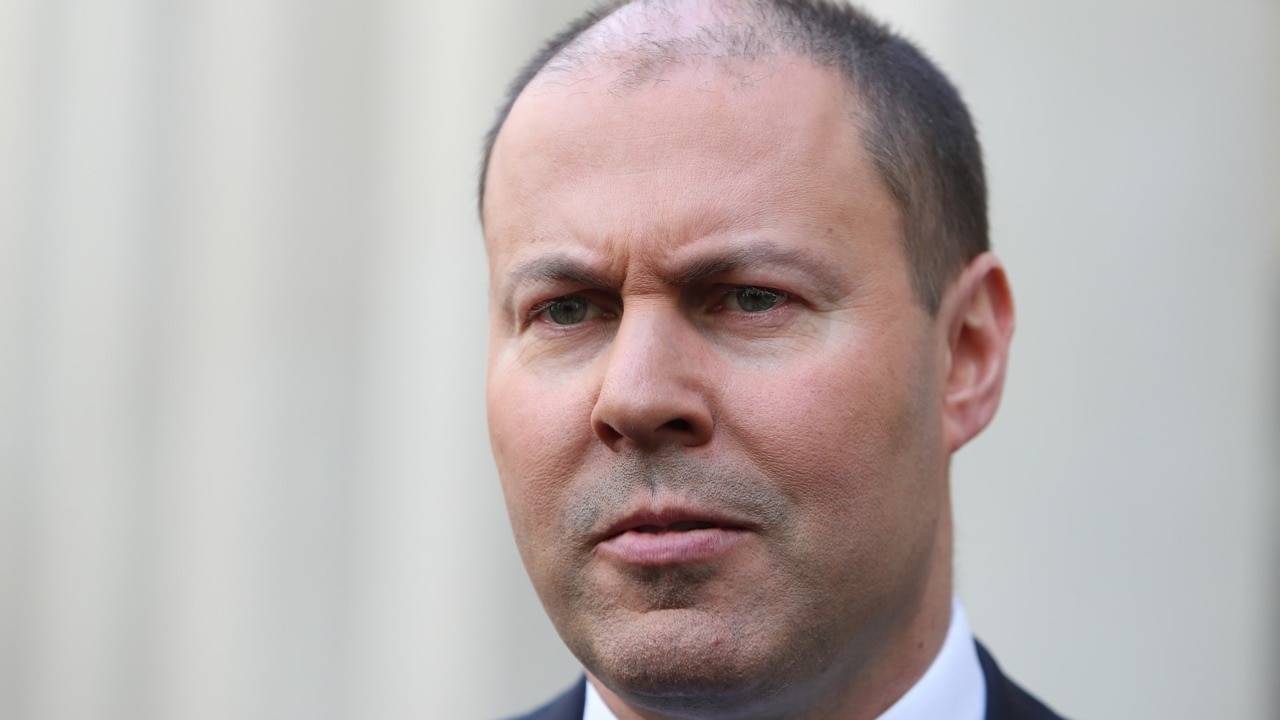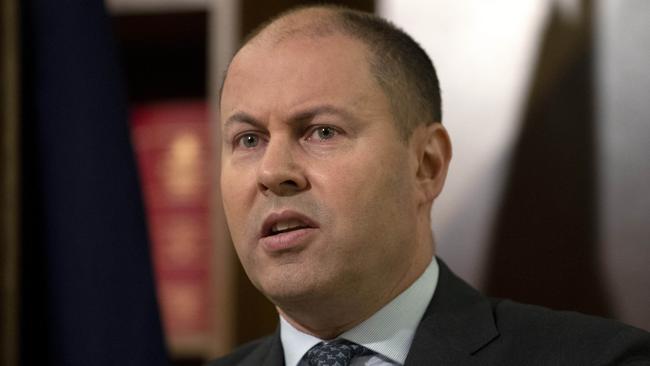James Campbell: Can Josh Frydenberg seize this crisis to try to remake Australia?
Josh Frydenberg and Scott Morrison deserve real credit for the way they have steered us through this pandemic but sadly for Frydenberg, who has risen rapidly in the ranks over 10 years, the easy bit is over and the real work is now set to begin, writes James Campbell.

James Campbell
Don't miss out on the headlines from James Campbell. Followed categories will be added to My News.
Poor Josh Frydenberg. He was probably planning on holding some kind of celebration this week — possibly with a little bit of fundraising — to mark the 10 years since he was first elected MP for Kooyong.
Instead he has been locked up in Canberra waiting to be released so he can attend parliament on Monday. That day will mark the end of his second year as Treasurer.
I suppose it seems like he’s been part of our national life forever because, like Bill Shorten, Frydenberg was someone people were talking about long before he arrived in parliament, but when you think about it, he’s had a rapid rise for someone who’s only been there since 2010. Made Tony Abbott’s own personal parliamentary secretary when the Coalition came back to government in 2013, he was Assistant Treasurer a year later. A year after that, he’d made it into Cabinet under Malcolm Turnbull.
The beauty in having had three jobs in three years was that no one was really in a position to judge how well he had performed in any of them. But that run of luck ended when Turnbull made him environment and energy Minister after the 2016 election, handing him the brief of fixing the mess that is energy policy in Australia.

Four years later Australia’s energy policy remains unfixed and Turnbull is long gone. But even among his colleagues who detested Frydenberg’s solution — the since abandoned National Energy Guarantee — there seems to have been a grudging respect for the way he took the time to try to win them over during the two years he was in the portfolio. Which explains perhaps why, when Turnbull fell, taking the NEG with him, no one seems to have held it against Frydenberg that he was its author.
Everyone knew that prior to being handed that big brown sandwich by Turnbull, energy policy was not something that had greatly exercised his imagination. And there’s certainly little indication he has thought about it much since he handed that tar baby over to Angus Taylor. He had been given a job to do and he’d done it.
Unfortunately, the same might be said of the responsibilities attached to his present portfolio. The job in Canberra that long-time Josh watchers had assumed he really wanted, aside from the top one of course, was foreign affairs Minister.
Which is why I suspect that when Frydenberg spoke recently of his admiration for Ronald Reagan and Margaret Thatcher, he was thinking more of the man who stood up to the Soviet Union than the supply side warrior and in Thatcher’s case, the woman who retrieved the Falklands, not the victor of the miners’ strike.
No one ever lost points with the Liberal Party for expressing an admiration for Margaret Thatcher — leaving aside that as a scientist she was the first global leader to take global warming seriously — but as personality types they don’t share much in common.
The Iron Lady famously didn’t care what other people thought of her whereas if there’s one thing his admirers and detractors all agree on about Josh Frydenberg, it’s that he has a craving to be liked. And while she revelled in conflict, he is notoriously conflict-averse.
Moreover by the time they became leaders everyone knew what Margaret Thatcher and Ronald Reagan stood for and where they wanted to take their countries.
In his first 18 months as Treasurer, Frydenberg gave no sign he was itching to undertake anything. Which you could argue was fine in those more innocent days as we weren’t in a crisis.

Since the current disaster has befallen us, he and Scott Morrison have performed admirably. Without the money they have poured into the economy, things would have been unimaginably worse — especially in Victoria.
Working to solve an immediate crisis has played to Frydenberg’s strengths: he’s quick on the uptake, masters a problem quickly and is not over-encumbered with the sort of ideological baggage that would prevent sudden U-turns.
Eventually however, the present immediate crisis will pass (not as quickly as it would have thanks to Victoria’s disastrous hotel quarantine program) and then we are going to want to see a sign from the government that it knows where it wants to take us. This sounds churlish but it isn’t meant to be.
Frydenberg and Morrison deserve real credit for the way they have steered us through this crisis. But we need to know what they want to do next.
Is the plan to try to return Australia to the world of December 2019, or are our leaders going to try to seize the opportunity of this crisis to try to remake it?
The point to grasp is that however they answer, the question will involve unpopular decisions. For example, leaving aside Terry McCrann’s point that we have been effectively running a Ponzi scheme, getting back to pre-COVID immigration numbers will be the quickest and easiest way to stimulate demand.
But while it might be essential to get Australia back to “normal”, there’s no way that any government can import hundreds of thousands of new people every year in a country where 10 per cent of the workforce is unemployed. Not without risking a populist backlash.
The alternative — finding a way of growing the economy by increasing the productivity of the people and businesses already here — will be hard too as it will mean taking on interests, some of which are supporters of the Liberal Party.
So congratulations to Josh Frydenberg on 10 years in parliament and well done on getting us through this crisis.
But sadly for him, the easy bit is over and the real work starts here.
James Campbell is a Herald Sun columnist

